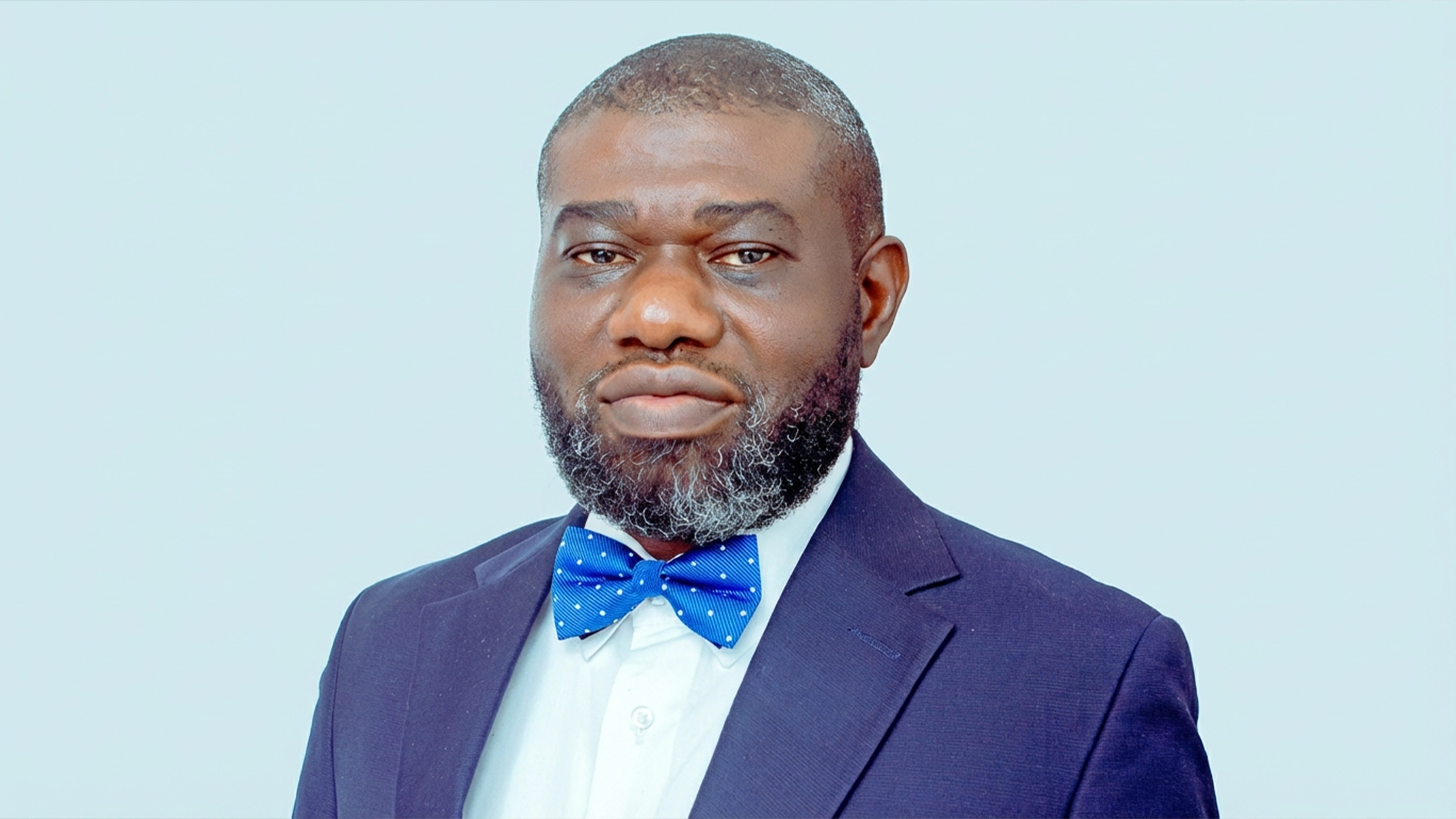Amongst a rare breed of African business leaders who have fused intellect, instinct, and integrity into a single frame of enterprise, one name stands tall, and his story is not merely one of financial success. It is an unfolding chronicle of purpose, discipline, and vision that continues to shape industries and inspire generations. At fifty-seven, Kola Karim’s journey embodies what may rightly be called the Taikun Mindset—a way of thinking and living that fuses bold ambition with strategic restraint, wealth creation with social responsibility, and legacy with humility.
The word Taikun, from which “tycoon” is derived, denotes not just affluence but dominion—the capacity to influence and build sustainably. Few Nigerians personify that spirit like Kola Karim. As Chairman of Shoreline Natural Resources Limited (SNRL) and CEO of Shoreline Group, he has led one of Africa’s most diversified indigenous conglomerates, with interests spanning energy, power, engineering, infrastructure, and manufacturing. Shoreline’s operations cut across multiple sub-Saharan African economies, providing both industrial solutions and employment at scale. Beyond the numbers lies a deeper narrative—one shaped by patience and perspective. Karim is not driven by flash or applause; he is deliberate, strategic, and methodical. His success stems from long-range thinking and the courage to act where others hesitate.
While many in the oil and gas sector pursue short-term extraction gains, Karim’s strategy has been one of integration and sustainability. Through Shoreline, he has built value chains that extend from energy production to industrial transformation, power generation, and logistics infrastructure. His philosophy is simple: Africa must not remain a supplier of raw resources but become a manufacturer of value. His investments reflect a consistent pattern of exploring spaces where impact and innovation intersect.
Karim’s leadership style underscores his belief that the private sector must help fill gaps where government capacity falters. For him, business must not only yield profit but catalyse national productivity. Under his stewardship, Shoreline has become a platform for broader economic empowerment, offering both enterprise and opportunity.
Kola Karim’s leadership finds its deepest expression in his personal values. A man of discipline and discretion, he draws from both modern enterprise and traditional heritage to shape his worldview. As the Agbaoye of Ibadanland—an age-old honorary title with keen affinity and passion for Ibadan—he carries the dignity of Yoruba nobility with modern intellect. His recent donation of a Rolls-Royce Phantom to the newly crowned Olubadan of Ibadan, HRH Kabiyesi Rashidi Ladoja, was widely discussed, not as extravagance but as a symbol of continuity and reverence for culture.
For Karim, wealth divorced from heritage is hollow; leadership detached from humility is brittle. His ability to navigate global business while staying rooted in culture marks him as a man equally at ease in boardrooms and palaces. In his TEDx Talk on Pushing Entrepreneurial Boundaries, he spoke about the necessity of self-belief, resilience, and ethical ambition. His message was clear: greatness is not stumbled upon; it is built deliberately, one disciplined day at a time.
To describe Karim as relentless is not hyperbole; it is acknowledgement. His ventures have endured market turbulence, regulatory uncertainty, and the unpredictability of Nigeria’s business environment, yet he continues to expand his frontiers with calm precision. Named a World Economic Forum (WEF) Young Global Leader in 2008, Karim earned recognition not only for enterprise but for foresight. He has consistently argued that Africa’s transformation must be home-grown, built on indigenous expertise and technological transfer. Earlier, he sat on the advisory board of the foremost bourse, the London Stock Exchange (LSE). Lest one forget, he was also on the Dean’s Council of Harvard Kennedy School and Grange School.
Today, as the continent grapples with economic transition and the global shift towards renewables, his strategic foresight positions Shoreline as a player in the next phase of Africa’s energy evolution. Karim’s approach to leadership extends to mentorship. He believes true success is measured not by accumulation but by replication—by how many new leaders and innovators one’s journey inspires. For him, wealth is not an end but a tool for continuity.
Operating in Nigeria’s volatile business terrain is not for the faint-hearted. Policy inconsistencies, infrastructural deficits, and financial bottlenecks have derailed many enterprises. Yet Karim’s ability to sustain a multi-sectoral enterprise like Shoreline underscores his adaptive intelligence and managerial depth. Armed with a BA degree in Business Management and an LLM in Environmental Law, he has applied his knowledge effectively in the business ecosystem. A cursory look at his role as Advisory Board Chairman of British American Tobacco Nigeria (BAT Nigeria) reveals how he provides strategic guidance and oversight, leveraging his extensive leadership experience and industry knowledge to support the company’s continued success in a dynamic and evolving market.
He belongs to a select class of Nigerian industrialists who have resisted the lure of easy gains in favour of institutional durability. His ventures prioritise competence, process, and people over personality. Karim’s belief in African capacity drives his insistence on building local expertise. By reducing dependence on expatriate management and prioritising home-grown talent, he reinforces the idea that Africa’s development must be driven by Africans themselves. This quiet economic nationalism sets him apart. He represents a generation of entrepreneurs who not only participate in global capitalism but seek to redefine it on terms rooted in African resilience, creativity, and self-determination.
At 57, Karim’s story is still in motion. If the past three decades have been about building, the coming ones are about deepening. His footprint across industry, culture, and philanthropy continues to widen. He is poised to play an even greater role in shaping Africa’s energy transition and sustainability agenda via business entities such as Mota Engil and SNRL, where he calls the shots. His actions are part of collective efforts ensuring that the continent is not left behind in the global race towards cleaner, smarter power. He also sits on the recently inaugurated Olubadan Investment Council with other eminent indigenes.
But perhaps his most enduring legacy will lie in institutional imagination—his rare capacity to connect dots where others see divides, and to merge the old with the new, the local with the global, the traditional with the transformational. From Ibadan to London, from oilfields to boardrooms such as A.G. Leventis (Nigeria) Limited, Schlumberger Testing and Production Nigeria Limited, and the Nigeria Business Council, Kola Karim’s life radiates a powerful message: that leadership is not about dominance but about direction; not about accumulation but about creation. Age, for visionaries, is not a countdown but a calibration point. At 57, Kola Karim stands at the intersection of wisdom and vitality, embodying the grace of a man who has mastered both ambition and balance.
In a nutshell, the Taikun Mindset he represents is a philosophy of responsible dominion—laden with the power to lead, to build, and to uplift without arrogance. Alhaji KK’s journey to the top has not been without its challenges. Yet, his irrepressible spirit has always seen him push through. Whether it is economic downturns, regulatory hurdles, or global competition, Karim has demonstrated an uncanny ability to not just survive but to thrive. His story is a powerful example of the strength and perseverance needed to succeed in Africa’s complex business landscape. Agbaoye Kola Karim was recently honoured with the Honorary Degree of Doctor of Science (DSc Honoris Causa) by Crescent University, Abeokuta, in recognition of his accomplishments in business across the globe, as well as his charitable contributions to the education of the less privileged.
The first interface between this author and the polo-loving buff was onboard a Bellview Airlines flight from Abuja to Lagos in 2003, alongside his longtime associate, Philip Wharton. His lucid submissions via impeccable King’s English diction on business and economy left one spellbound with his dexterity on the touchpoints of business development and transformation. In a world obsessed with noise, he remains a quiet force with recurring characteristics proving that true power is measured not in volume but in value. Alhaji KK’s love for polo and horses is second to none, having played with the great and the good from England, Argentina, and the Middle East. He is also a member of the Guards Polo Club in England. His advocacy for philanthropic initiatives and charity led to the creation of the Karim Family Foundation Project HALO, which supports and sponsors educational development and students.
As Nigeria and Africa seek a new renaissance of industrial and ethical leadership, the story of Alhaji KK is both template and testament—a reminder that the continent’s future will not be defined by those who shout the loudest, but by those who build the longest. As he clocks 57 on November 24, 2025, KK is not done. He is, instead, just beginning another cycle of purpose and proof that, in the Taikun Mindset, vision has no retirement age.
Ajanaku is a Communications and Advocacy Specialist based in Lagos, Nigeria.






